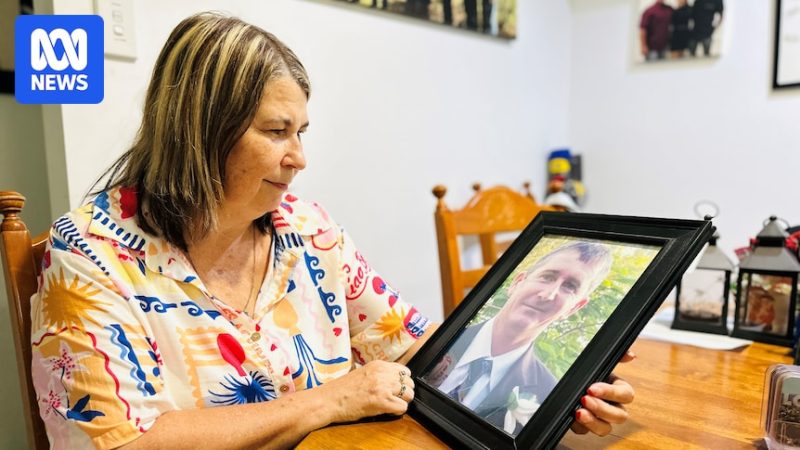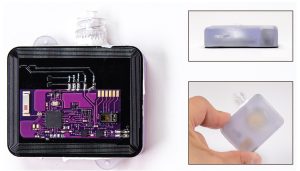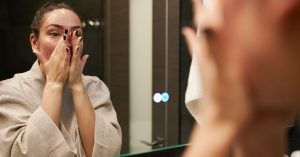Yeppoon family shares devastating melanoma journey in hope it saves lives

Lyell Duffy thought he had pulled a muscle at work when he began experiencing back pain.
But four days later, doctors gave him a devastating diagnosis.
The 46-year-old Yeppoon man was told he had advanced-stage cancer.
It had spread throughout his body and he was on borrowed time.
“My whole world just fell apart,” Mr Duffy’s wife, Fay, said.
The Duffy family were by Lyell’s side until the end. (Supplied: Fay Duffy)
“He came home from work and said, ‘I think I need to go to the doctor to get this back looked at’ because he could hardly walk.
“The GP sent him for an ultrasound and we went back for the results and that’s when they said he had cancer but they couldn’t tell us what it was.”
The cancer had encapsulated Mr Duffy’s liver and surrounding arteries so surgery was not an option.
The central Queensland couple had 27 years together with many adventures. (Supplied: Fay Duffy)
“Lyell then had a biopsy of the tumour on his liver to determine the type of cancer and course of treatment,” Ms Duffy said.
“That’s when we found out it was melanoma … the primary was unknown.”
The family decided to try immunotherapy treatment.
It offered Mr Duffy and his loved ones — adored wife and their three children, Marc, Shania, and Jakob — a little bit of hope.
Ms Duffy says her husband’s main love in life was his family. (ABC Capricornia: Aaron Kelly)
“Unfortunately, he only received one treatment,” Ms Duffy said.
“When we arrived for his second treatment our physician said Lyell was not well enough to have the treatment and that he was probably not going to make it through that night.”
Mr Duffy’s brief but brave battle with stage 4 melanoma lasted a very short nine weeks and three days.
He died on July 22, 2014.
Mr Duffy celebrated his 46th birthday at home watching the State of Origin. (Supplied: Fay Duffy)
Dad’s legacy lives on
Mr Duffy loved fishing, pig hunting, camping, and the North Queensland Cowboys.
But his main love was his family.
Ms Duffy said she was sharing her family’s cancer story a decade on in the hope it might save someone.
Mr Duffy adored his three children and his granddaughter, Harper. (Supplied: Fay Duffy)
“Lyell’s primary [cancer] was never found,” Ms Duffy said.
“We always had skin checks and that’s why sun safety and awareness is so important.
“It’s surreal how quickly we went from everyday life to living with melanoma and tragically now living without Lyell.”
Anne Cust says melanoma is Australia’s third most common cancer. (Supplied: Melanoma Institute Australia)
Australia is, globally, number one for skin cancer.
The World Health Organisation predicts there will be a 68 per cent increase in deaths from melanoma by 2040.
“Two-thirds of Australians will be diagnosed with skin cancer in their lifetime,” Professor Anne Cust, from Melanoma Institute Australia, said.
“Melanoma is our third most common cancer in Australia and for young adults, it’s the most common cancer.”
Dr Cust said most skin cancer deaths could be prevented due to advancements in lifesaving treatments.
“In the past, it used to be very low survival rates for people who got advanced melanoma,” she said.
“These days, more than 50 per cent of those people will continue to live a healthy life even after that diagnosis.”
Australians are encouraged to have regular skin checks. (ABC Southern Qld: Peter Gunders)
Dr Cust also urged people to get regular skin checks.
“It’s important for everyone to be familiar with their skin and consider getting a regular skin check,” she said.
“If you see something that’s new or changing get it checked out by your doctor.”








